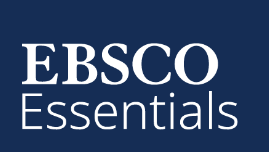A Study of Requirements on Virtual Learning Model for Higher Education
Keywords:
Virtual Learning, Higher Education, Learning Model, Virtual Classroom, Student NeedsAbstract
This research aimed: 1) to study the needs for virtual learning models in higher education, and 2) to propose a conceptual framework for virtual learning models in higher education. The research samples were 379 undergraduate students from Mahasarakham University, determined by Krejcie & Morgan sample size formula. There were selected by accidental sampling method. A questionnaire was a research instrument consisting of quantitative and qualitative questions. Data analysis was conducted in the form of frequency and typological analysis. The results were explained in descriptive form. The research results revealed that: 1) the need of a virtual learning model for higher education based on online learning, the interaction between instructors and students not require physical presence in a real classroom, and various programs assist learning beyond the regular classroom, and 2) the conceptual framework of virtual learning models for higher education consists of two main interrelated factors were: 1) higher education learning and virtual learning, including virtual reality, synchronous learning/asynchronous learning, learning support software, and the ability to learn both online and offline, and 2) new era learning components, including collaborative learning, interactive learning, and technology. This conceptual framework can serve as a guideline for developing virtual learning in higher education to meet learners' needs and ensure sustainability in the future.
References
Bennett, J. L. (2022). Student and instructor perceptions of virtual library instruction sessions. Journal of Library & Information Services in Distance Learning, 15(4), 224–235. https://doi.org/10.1080/1533290X.2021.2005216
Ounraun, W. (2020). An instructional model development based on social constructivism and authentic learning approaches to enhance differentiated instruction ability for student teachers [Doctoral dissertation, Naresuan University]. Naresuan University Repository.
Pooyang, I., Kaosaiyaporn, O., & Lateh, A. (2023). Development of virtual learning environment based on constructivism to enhance computational thinking skills in Grade 10 students taking computing science course 1. Journal of Information and Learning, 34(2), 40–51. https://doi.org/10.14456/jil.2023.18
Riansut, W. (2017). A study of backgrounds and habits from undergraduate students of Thaksin University who have normal status and probation, using Hotelling’s T2 test. Journal of Science & Technology Ubon Ratchathani University, 19(2), 144–158.
Sangthong, S. (2019). The development of MECCA model to enhance critical reading abilities for upper secondary school students [Doctoral dissertation, Silpakorn University]. Silpakorn University Repository.
Shen, X., & Liu, J. (2022). Analysis of factors affecting user willingness to use virtual online education platforms. International Journal of Emerging Technologies in Learning (iJET), 17(1), 74–89. https://doi.org/10.3991/ijet.v17i01.28713
Sornsiriwong, P. (2021). Virtual classroom. Journal of Education Silpakorn University, 19(2), 81–93.
Downloads
Published
Issue
Section
License
Copyright (c) 2025 Journal of Organizational Innovation & Culture

This work is licensed under a Creative Commons Attribution-NoDerivatives 4.0 International License.





